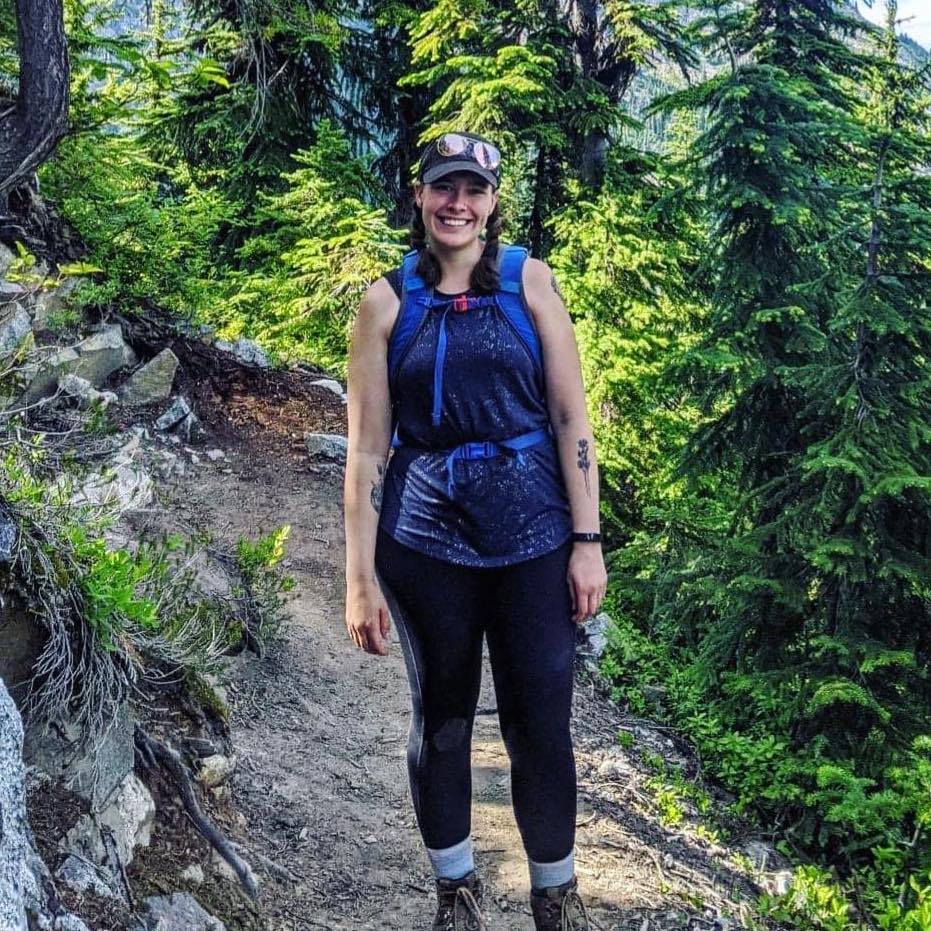Magen Hauser
My name is Magen and I’ve been in DSPAI for a year. My agent identities are that I am a White, cisgender young adult and United States citizen with a Christian, heteronormative upbringing. My target identities include being female, bisexual, agnostic and physically disabled.
My journey of understanding privilege before joining this group was long and difficult. I started my Masters education in a program that boasted rigorous training in cultural competence. According to this program and others I was exposed to, cultural competence is the ability to understand and care for anyone who walks into your therapy office, from White Midwesterners to Burmese refugees. The program prided itself on its ability to produce what they deemed to be some of the most culturally competent practitioners in the field. From this source of pride came an air of competition: who can be the most “woke” student at any given moment. And any given moment was the chance to prove yourself.
Privilege, on the other hand, was a shaming tool. My only lesson on privilege was a privilege walk my professor facilitated during one of our cultural competency classes. Rather than teaching us about privilege through this activity, the professor singled out BIPOC students and used them as teaching examples, while deeming those with the most privilege as the ones who should feel the guiltiest. The lesson ended there.
Starting that program as someone who at that time identified as a White straight/cisgender Christian, I immediately lost the competition; and I was made to feel guiltier than ever before. I definitely had a long way to go in my own cultural awareness and anti-prejudice journey; but instead of being given the tools and the space to apply them, I was dismissed by fellow students and even some professors as racist and homophobic because of my identities. I was shamed so publicly in so many contexts that I shut down. I stopped speaking up in class, I grew even more defensive, and I lost a considerable amount of willingness to continue my journey. It wasn’t until one professor called me into her office less than six months before graduation – empathizing with me, offering me tools and guidance – that my motivation shifted, and my journey toward privilege awareness truly gained momentum.
I’ve thought about this a lot, and we’ve talked about it extensively in DSPAI: how do we respond to people who aren’t as far into their journey with compassion, even when they in their ignorance are actively doing harm?
DSPAI became the answer for me. Somewhat like my experience with the Masters professor, I finally had a space to learn about privilege and process my own, surrounded by others who are doing the same. We respond to each other with empathy and patience, even despite our differing agent and target identities. I was finally able to move past the guilt and shame that consumed me. Because being shamed was the default response in my past experiences, I was terrified to speak up and actively participate in the group discussions. Yet hearing my classmates and even the professors reflecting on their struggles with privilege so openly and seeing them being met with compassion, I finally felt safe to speak up; and I felt so affirmed when I was met with that same compassion. In place of guilt-tripping was supportive accountability, and that made all the difference. I’ve grown more in my privilege awareness and “cultural competence” than I did in two years at a program that claimed to be the best at it. Over the past year I’ve come to terms with the intersectionality and nuances of my own identity, especially in relation to others both clinically and socially. I now have language with which to talk about power and privilege. And ultimately, I’ve come to understand the importance and the beauty of having and giving others a safe space in which to learn and grow in their privilege awareness and anti-prejudice journey. I can’t even begin to express my gratitude for being given the opportunity and the safety I never had before. Myself, my clients, and the world are better for it.

Magen Hauser (she/her)
I am a first-year student in the AUS PsyD program. While I attended a Master’s program that boasted about its high level of cultural competence, I left the program feeling wildly unprepared to face issues of power and privilege dynamics in my clinical work. I came to Antioch in hopes of not only learning how to address power and privilege in the therapy room, but also to help find ways to teach other budding clinicians to do the same, as well as moving the field of Psychology toward a social justice approach. I am currently part of the privilege in social media project, and I am also interested in expanding on the therapist paragon project to understand and alleviate therapist burnout and traumatization. I’m so excited to be part of this group with such amazing students and faculty, and I’m excited to see what strides we make throughout my time at Antioch!